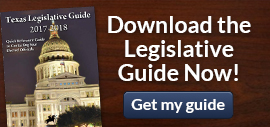Legal Experts: Houston Prop 1 Bathroom Ordinance Is Bad Policy, Risks For City, Women, & Children
Austin, TX, October 15, 2015 – Today the national legal experts from the organization Alliance Defending Freedom released a legal memorandum on Houston Proposition 1. The legal memo details the ordinance’s threat to safety, the First Amendment freedoms and high costs to the City of Houston both legally and financially.
Jonathan Saenz, President of Texas Values Action and attorney stated, “The findings in the legal memorandum by Alliance Defending Freedom are clear: Proposition 1 is without a doubt dangerous to the people in the City of Houston. Prop 1 is filled with constitutional violations, government overreach, and numerous threats to the safety of women and children. Similar ordinances in several cities and states have recently been voted down. Houstonians should follow the trend and vote “no” on local Prop 1.”
According to the memorandum, there are 3 distinct problems with Houston Prop 1 including
“• The Ordinance will allow biological men into women’s bathrooms, shower rooms,
and locker rooms, placing women and children at risk of voyeurism, photographing
and video recording, and sexual assault;
• The Ordinance will infringe First Amendment free speech rights; and
• Because the Ordinance is not needed in Houston, the potential cost outweighs any
perceived benefit.”“Within just the past year the legislatures of Idaho, Wyoming, and North Dakota declined to add sexualorientation and gender identity to their nondiscrimination laws. So have the following cities: Berea, KY (October2014), Fountain Hills, AZ (November 2014), Beckley, WV (December 2014), Glendale, AZ, which hosted this year’s Super Bowl (January 2015), Bardstown, KY (March 2015), Charlotte, NC (March 2015), Scottsdale, AZ (March 2015), Elkhart, IN (July 2015), and Goshen, IN (August 2015). Voters in both Fayetteville, AR and
Springfield, MO, recently repealed the addition of sexual orientation and gender identity to their nondiscrimination Laws.”
The memorandum cites examples of disturbing cases of violations to women and children that may be permitted if Houston Prop 1 passes including “The disturbing case from 2012 in Dallas involving “Paula” Witherspoon, a man who was convicted in 1990 of sexual assault with a child and indecency involving sexual contact with a child. Both children were teenage girls. He is a registered sex offender. But in 2012, Witherspoon was spotted wearing women’s clothing going into the women’s bathroom in Dallas, where he would have access to young girls. He was ticketed by a Dallas policeman. But Witherspoon claimed to be “transgender,” and said that he had every right to use the bathroom with women and girls.”
The memorandum also explains, While no Open Bathrooms Policy like the one contained in the Proposed Ordinance has yet been challenged in court, there are federal appellate court decisions holding that individuals in various states of undress have a constitutional right to privacy. The Ninth Circuit Court of Appeals noted that “[w]e cannot conceive of a more basic subject of privacy than the naked body. The desire to shield one’s unclothed figure from . . . strangers of the opposite sex[] is impelled by elementary self-respect and personal dignity.”23 And the Tenth Circuit has explained that a person’s constitutional right to privacy is violated where a government policy or conduct allows a member of the opposite sex to view him or her while “engag[ing] in personal activities, such as undressing, using toilet facilities, or showering.”
The memorandum addresses the religious freedom violations of the ordinance stating, “A Kentucky court recently held a similar Lexington ordinance unconstitutional under the First Amendment to the United States Constitution when applied to a business person who declined to promote a message that would violate his religious beliefs.28 The Proposed Ordinance, if enacted, will suffer from the same constitutional infirmities as the Lexington law, because it does not provide exemptions for businesses that decline to create speech or promote events that conflict with the owners’ conscience convictions.”
Finally, the memorandum also cites “Section 1983 lawsuits” that Houston could face because of the proposition such as McCullen v. Coakley, Republican Party of Minnesota v. White, and Randall v. Sorrell. These cases prove that such lawsuits could cost Houston an amount which could “easily” start in the “Low hundreds of thousands of dollars and can go much higher.” Even cases that do not go to trial such as Gros v. New Orleans cost the city $163.847.63 in attorney fees and costs.
Click here to view the full legal memorandum.
About Texas Values Action
Texas Values Action is the 501(c)(4) advocacy arm of Texas Values, a non-profit organization dedicated to standing for faith, family, and freedom in Texas. More information is available at txvaluesaction.org.








